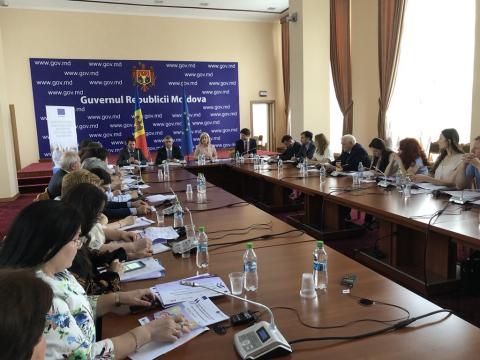
A first public-private Working Group meeting, launching the third cycle of the Small Business Act for Europe (SBA) assessment, took place in Chisinau on 23 May 2018.
The main objective of the Working Group meeting was to launch the third cycle of the SBA assessment. In addition, the meeting provided an opportunity to take stock of the progress in implementation of SME policies in Moldova since 2016, and the reform priorities for the upcoming period.
The meeting was organised by the OECD in the framework of the EU-funded project ‘EU4Business: From Policies to Action’. The Small Business Act for Europe is an overarching framework for the EU policy on SMEs. It aims to improve the approach to entrepreneurship in Europe, simplify the regulatory and policy environment for SMEs, and remove the remaining barriers to their development.
At the Working Group meeting, the Ministry of Economy and Infrastructure reported on recent policies and programmes to support SME development in Moldova, such as the Credit Guarantee Fund, support programmes for exporting SMEs, start-ups and women entrepreneurs, and the envisaged reform of the bankruptcy law. State Secretary Iulia Costin reaffirmed the commitment of the Ministry of Economy and Infrastructure to continue their efforts to foster SME development in Moldova.
Representatives from business associations welcomed the reforms that have been implemented. However, they expressed the need for further efforts to stimulate the innovative and export capacity of SMEs.
The OECD team presented the assessment framework and timeline for the third SBA assessment cycle. This cycle aims to broaden the scope of the assessment to allow for an evaluation of the overall business environment conditions for enterprises – with a particular focus on business integrity, competition and contract enforcement.
In addition, private sector perspectives on policy barriers and policy effectiveness will be taken into account to a greater extent, by holding private sector focus groups in each country and encouraging active private sector contribution to working group meetings.
The Working Group gathered around 40 participants from the Ministry of Economy and Infrastructure, the EU Delegation to the Republic of Moldova, ODIMM, private sector business associations, National Institute for Economic Research, National Commission for Financial Markets, Public Procurement Agency and other representatives from private and public sector.
